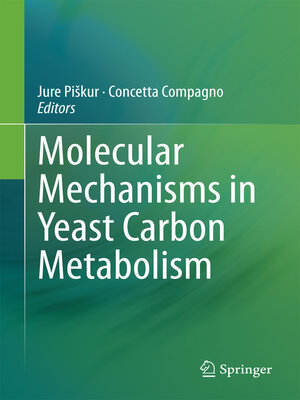
Sign up to save your library
With an OverDrive account, you can save your favorite libraries for at-a-glance information about availability. Find out more about OverDrive accounts.
Find this title in Libby, the library reading app by OverDrive.



Search for a digital library with this title
Title found at these libraries:
| Loading... |
Yeast is one of the most studied laboratory organisms and represents one of the most central models to understand how any eukaryote cell works. On the other hand, yeast fermentations have for millennia provided us with a variety of biotech products, like wine, beer, vitamins, and recently also with pharmaceutically active heterologous products and biofuels. A central biochemical activity in the yeast cell is the metabolism of carbon compounds, providing energy for the whole cell, and precursors for any of the final fermentation products. A complex set of genes and regulatory pathways controls the metabolism of carbon compounds, from nutrient sensing, signal transduction, transcription regulation and post-transcriptional events. Recent advances in comparative genomics and development of post-genomic tools have provided further insights into the network of genes and enzymes, and molecular mechanisms which are responsible for a balanced metabolism of carbon compounds in the yeast cell, and which could be manipulated in the laboratory to increase the yield and quality of yeast biotech products. This book provides a dozen of most comprehensive reviews on the recent developments and achievements in the field of yeast carbon metabolism, from academic studies on gene expression to biotechnology relevant topics.






